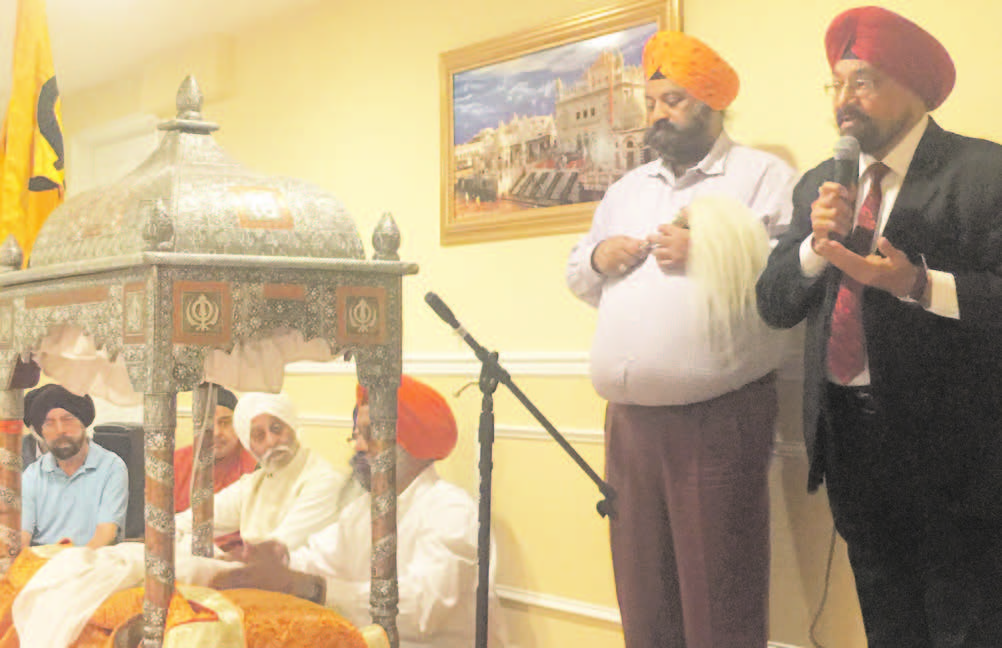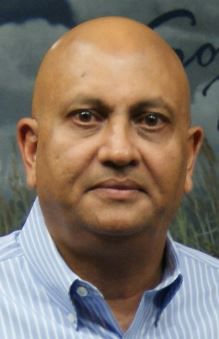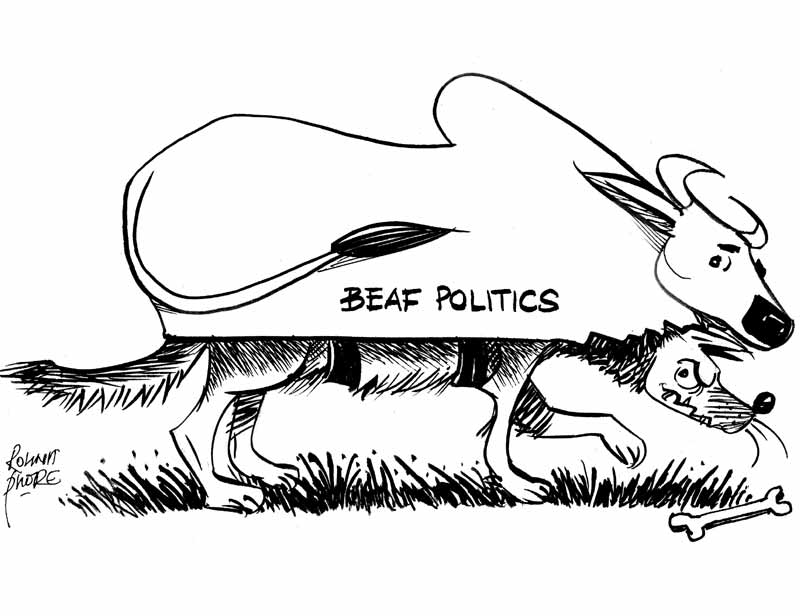
EDISON, NJ (TIP): The upscale neighborhood in North Edison, NJ, was full of life on a bright and sunny Sunday, when hundreds of Indian-Americans gathered at the decorated house of J. Bakshi to celebrate the joyful festival of Vaisakhi.
The event was hosted by J. Bakshi, the owner of Nanak sweets, who opened his door for neighbors and friends. The event started with Kirtan in which everyone participated. Men, women and children bowed before the holy book to pay their respects and wor-shipped the Guru Granth Sahib seated in a colorful canopy in the hall.
As the Kirtan was over, Bakshi invited Professor Saluja to present two documentary movies produced and directed by Saluja as a tribute to the Khalsa faith and the Vaisakhi festival.
Explaining his passion for serving the Indian American community, Prof Saluja said that he produced the movies to make viewers proud of their heritage.
The first film, a documentary on Guru Govind Singh, the tenth guru of the Sikh panth, who fought to save his religion and faith.
In 1699 the tenth guru, Guru Govind Singh, chose Vaisakhi as the occasion to transform the Sikhs into a family of soldier saints, known as the Khalsa Panth. Guru Govind Singh founded the Khalsa in front of thousands at Anandpur Sahib. During the Vaisakhi festival Guru Govind Singh came out of a tent carrying a sword. He challenged any Sikh who was prepared to give his life to come into the tent. The Guru returned alone with his sword covered in blood. He then requested another volunteer and repeated the same ac-tion four times until five men disappeared into the tent. The crowd was very concerned until they saw five men return wearing turbans with the Guru. These five men became known as the Panj Piare, or ‘Beloved Five’.
Saluja commented that members of the proud Khalsa community fought for the freedom of India and continued to lead the nation in all fields from defense to art and sciences.
The second film traces the background of Vaisakhi celebration coinciding with the onset of Spring that fills people with joy and happiness. Vaisakhi, also spelled Baisakhi, is one of the most important dates in the Sikh calendar. It is the Sikh New Year festival that commemorates 1699, the year Sikhism was born as a collective faith.
The festival is celebrated in all parts of India as the New Year’s Day for Hindus in Tamil Nadu, Kerala, Odisha, West Bengal, Assam, Bihar, Uttarakhand, Uttar Pradesh, Hima-chal Pradesh, Haryana, Punjab. The significance of Vaisakhi is similar in all parts of India and known by many names. Hindus take bath in the Ganges and other sacred rivers as they believe that river goddess Ganges descended to earth on Vaisakhi. People visit tem-ples, meet friends and party over festive foods.
Vaisakhi coincides with the festival of ‘Vishu’ celebrated in Kerala a day after Vaisakhi. The celebration is full of glitz as it includes decorations with colorful flowers, grains and fruits. People visit their friends and families and offer gifts to friends and loved ones, and alms to the needy.

In West Bengal Vaisakhi is celebrated as Pohela Boishakh and Bahag Bihu in Assam. In-troducing his films Saluja reminded the audience that the festival brings home the mes-sage of unity, peace and pride for all people of Indian origin. “So many of our ancestors made sacrifices to give us our freedom to enjoy that is our duty to preserve our unity and culture. By remembering and following the paths our ancestors showed us we can live in peace, freedom and strengthen our culture and heritage for the new generations.
A community feast called ‘Langar’ was hosted by Bakshi for his guests.





Be the first to comment